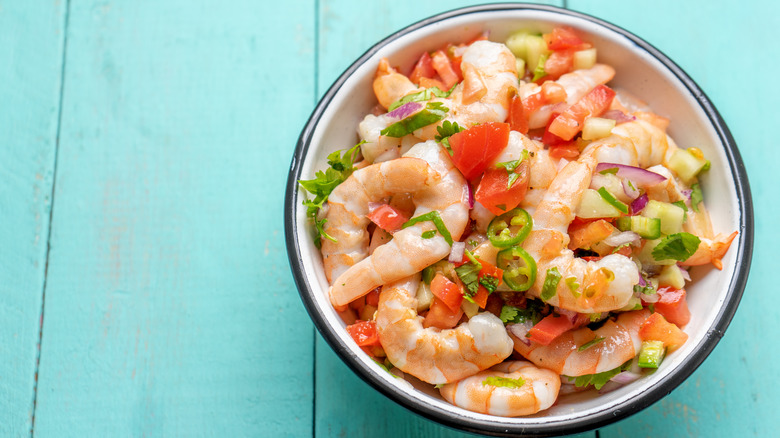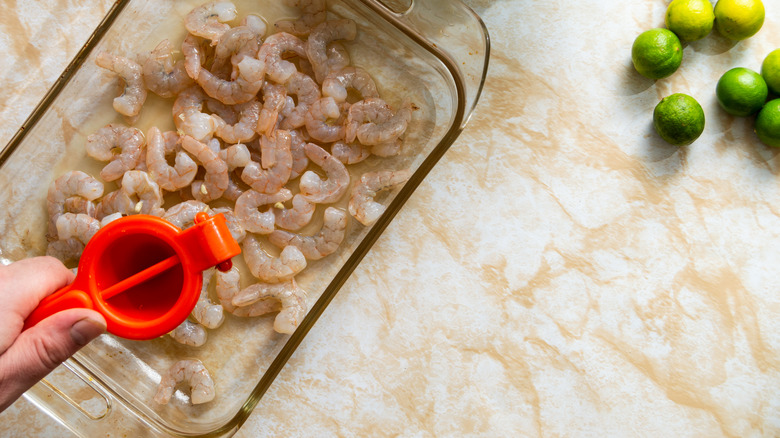The Common Mistake That Ruins Homemade Ceviche
When you dine at a seafood restaurant that serves any sort of Latin American cuisine, there's a good chance you'll see ceviche on the menu. Per Southern Living, recipes for the raw seafood dish vary from region to region, with some using fish or shrimp, and others adding scallop, octopus, and sometimes squid. Sweet and spicy mix-ins such as chili peppers and fruits also vary, but there's one element that remains the same whether you're making Peruvian ceviche, Mexican ceviche, or Educadorian ceviche, and that's citrus juice.
As Serious Eats explains, citrus juice, being an acid, is precisely what "cooks" the raw seafood, or more accurately, causes the proteins in it to denature. Without citrus juice, you'd just have marinated raw seafood instead of ceviche, not to mention it wouldn't taste the same. Aside from the actual seafood, acid is the most important element of ceviche, and that means it can truly make or break your dish if you don't use it properly.
Citrus juice gives ceviche a short shelf life
If you're making ceviche at home, don't plan on having leftovers. Contrary to popular belief, ceviche gets worse the longer that it sits, because the acid in the citrus juice never stops breaking down the seafood. That's why ceviche only needs to be marinated for 10 minutes — at the most — before serving, chef and ceviche expert Sam Gorenstein explained to Food & Wine Magazine (via Yahoo). Gorenstein also pointed out that salt, another one of the components in ceviche, is a natural dehydrator, and when combined with acid will over time ruin the texture of the seafood.
According to Serious Eats, making ceviche is a lot like cooking steak. The longer it's left in the citrus juice, the more it becomes well-done, but what you're aiming for should resemble medium-rare. Ten minutes is the perfect amount of time because the seafood will be firm on the outside and tender on the inside. Any longer and it'll turn rubbery, so make sure to keep that marinating process short.

